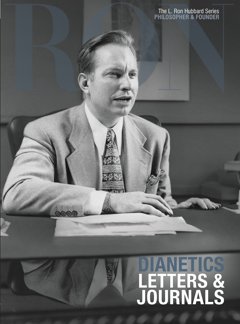What Does Dianetics Do?
What Does Dianetics Do?
Blog Article
Things about Dianetics
Table of ContentsThe Ultimate Guide To Dianetics6 Simple Techniques For DianeticsSome Known Details About Dianetics Unknown Facts About Dianetics
I could not ever not wish to obtain anything that comes to mind for you- if it was otherwise, I wouldn't be resting here with you, doing this. I not just could never ever have an issue, or otherwise want to listen to something that enters your mind for you, however I'm entirely anxious to recognize every idea, every idea, every image or sensation that emerges or manifests for you- don't ever believe or else, and if for some factor you do, please simply let me recognize! Occasionally, you may have a thought, and photo, concept or occurrence appear that does not appear to address the question, or connect to it, yet nevertheless, constantly do inform me concerning it, and as we continue, the relevance will certainly arise for you.This is integral in the basis of processing, and the topic of this conversation: the fundamental duties of the counselor and the customer: The standard role of the therapist is, as opposed to "basic training", not to control, which implies to implement and/or prevent, however to rather function from the basis of EMPOWERING THE CUSTOMER.

The 9-Second Trick For Dianetics
John Mcmasters shared this basic fact incredibly well in among his lectures on Power processing, where he explains just how he was asked what this "unique propensity" was that he had for giving such terrific sessions; he needed to consider that for a moment, and found that it was what he had not been doing, as well as what he was doing: he wasn't reviewing, judging, computing, or in reality, producing any type of ideas, not to mention verbal expressions, after offering the command and while waiting for the PC to finish their response to their contentment; he was, just and only, being existing with the PC, and entirely interested.
The role of the therapist, demonstrated; that was his "special knack". I have had my own experience which taught me this well, very early in the video game. In 1982, having actually lately finished my training and teaching fellowship on New Era Dianetics, I was running this on a COMPUTER, and there was a point in the session where (being a bit damp behind the ears not yet having lots of hours under my belt as a professional auditor) the PC appeared to be "taking as well long" to share anything try this out verbally after I offered him a command.
This trick became the most important contribution that John ever before made to the topic of therapy or auditing (Dianetics). In my simple viewpoint, it is the greatest contribution that any person has ever made to these subjectsthe application is totally non-judgemental, non-evaluative, and devoid of any type of idea, recommendations or opinion.no preconditioned schedule for people, or 'degrees' that they should do
In Scientology we prided ourselves on not assessing for people. All that actually indicated was that the auditor did not Vocally review for the PC in session.
The Facts About Dianetics Uncovered

Anyone that had ever seen John audit might not help but see a distinct high quality in his auditing."The client's basic function is to be there with the objective of relocating in the direction of their spiritual goals, and to easily and fully express and experience whatever manifests for them in answering the questions and performing the instructions in the processing.
This is something to procedure as required. Additionally, people often have previous experience and/or indoctrination in auditing/processing which, in some means, and to some levels, in fact deceives them right into mindsets, concepts and actions patterns that stop the complete realization of these duties, and so they will certainly have a tendency to inhibit the expressing of what comes to mind, as in the instances provided over - Dianetics. * The first, and possibly leading instances of mis-indoctrination resulting in less than entirely smooth and effective sessions, can be discovered in specific aspects of the training routines, or "TR's":"TR's" are typically an individual's initial, or a minimum of early, experience in Scientology, and while I will certainly go on to describe what I see as the defects in principle and method, nevertheless, have i thought about this a tendency to be greatly therapeutic, done as they are provided (Hubbard urges that "TR's additional resources are not refining, they are educating", however factually, they are both processing AND training)
There is no "flunking", and no denial of the reality of this being processing. The emphasis, as it needs to be, is on experiencing the various other individual's presence.
Little Known Questions About Dianetics.

Report this page